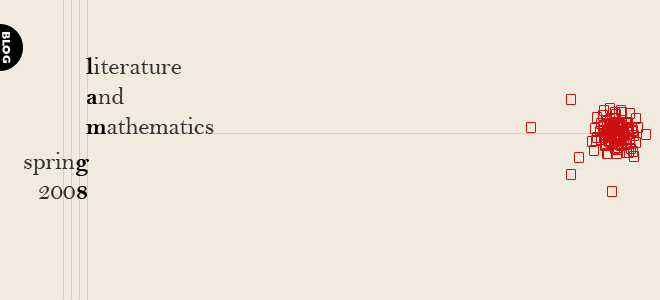I found the quote on page 259, “Living bodies are in the smallest of their parts machines, ad infinitum,” by Gottfried Von Liebniz to be very interesting. Firstly, aside from the main characters being named after geometric shapes, this is one of the only mathematical references I have noticed. Liebniz developed Calculus simultaneously with (or before)
When I first read the description of “cyborg,” I thought about a robot or a machine. This book, through descriptions of operations and the graphics involving genetic engineering patents, seems to be making a statement on humans meddling with nature. If nature is the perfect machine, than is this habit of ours dangerous? Or, is it possible to improve on perfection? Initially, one would think perfection implies the ultimate, flawless state and thus, cannot be surpassed. But, what does infinity mean? There are different sizes of infinity, and that seems to be counterintuitive.
I personally think that nature cannot be improved upon.

1 comment:
"I personally think that nature cannot be improved upon."
That is one of the most important ideas of this book, i think. I believe one of the points the authors are trying to get across. No matter how much changes in the future and how much "better" we can make our offspring there will always be problems. This weekend i watched I, Robot in which the giant super-computer points out that the only true way to protect humans is to keep them away from each other. The book is trying to get the same message by: the only way to make the perfect person is not to change everything about them, but to do nothing at all.
Post a Comment